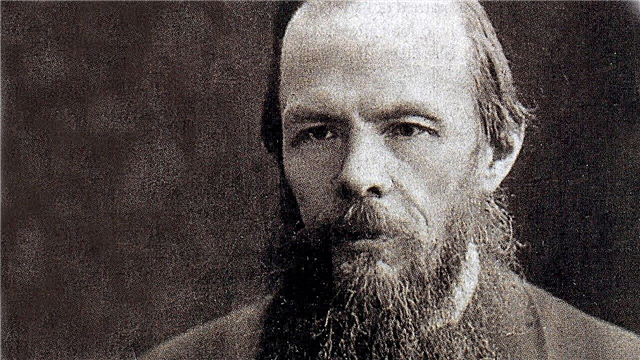Until 2005, the Internet was very different. The World Wide Web was already a huge structure with millions of sites and billions of users. However, the era was approaching, which one of its main ideologues Tim O'Reilly called Web 2.0. O'Reilly brilliantly predicted the emergence of Internet resources in which users will not only react to content, but create it. The prediction of the main ideologue of free software in Russia began to be brilliantly justified a year later, when Odnoklassniki and VKontakte appeared on the Runet with an interval of six months.

The social network "VKontakte" was launched in October 2006 and began to develop in steps for which even the definition of "seven-league" looks like an understatement. Despite some shortcomings, VKontakte quickly became the most visited resource in the Russian segment of the Internet and one of the most visited in the world. The facts below may help to learn something new about the history and current state of VKontakte.
1. Now it's hard to believe in it, but at the dawn of the existence of VKontakte, registration required not only to indicate the real name and surname, but also to present an invite from an existing user. However, there is no guarantee that in 10 years the legends about how it was possible to enter the Internet without presenting a passport or other identity document will not be treated as senile delirium.
2. In 2007, Russian-speaking netizens ranked VKontakte as the second most popular. The most popular Runet site was then “Basorg”.
3. The scale with which VKontakte was being promoted gave rise to a lot of rumors and speculations about the sources of funding for this take-off. Their dissemination was facilitated by a silent administration and a lack of advertising. Many were generally convinced that VKontakte was a project of the Russian special services. Whether it is true or not, it is probably impossible to find out, but dozens, if not hundreds, of criminals and offenders are caught using this social network. Employees of military registration and enlistment offices and collectors use VKontakte successfully.
4. “VKontakte” first surpassed Odnoklassniki in popularity at the end of 2008. And after six months, the creation of Pavel Durov outstripped competitors in terms of attendance almost twice.

5. They started talking about the negative impact of social networks on children and adolescents just after VKontakte became a mass resource.
6. The vk.com domain was purchased only in 2009. Coincidence or not, it was 2009 that marked the first dispatch of child pornography distributors and fraudsters to places not so distant. If it was possible to cope with child pornography, then the landing fraud did not stop.
7. In the early years of its existence, VKontakte was often subjected to massive - and successful - DDOS attacks. Again, we can talk about a coincidence, but the attacks stopped after the composition of the shareholders was disclosed, and it turned out that the main shareholder of the network is Mail.Ru Group. After that, on the contrary, VKontakte accounts began to be used for attacks on third-party sites.
8. In 2013, Roskomnadzor entered VKontakte into the register of prohibited sites. The cost of removing the resource from the ill-fated list was terabytes of deleted music and video. The groans of users who turned the social network into a kind of cloud service filled the Runet.
9. Sergei Lazarev became a victim of the struggle for copyright. When, in 2012, the singer's representatives demanded that the video and audio recordings of Lazarev's songs be removed, one of the users replaced the standard network message with the phrase that Lazarev's songs were removed as not representing any cultural value.
10. In the United States, VKontakte is at the forefront of the list of pirated resources. This is not surprising, knowing the reverent attitude of the local Themis to copyright.
11. At the end of 2013, according to Durov, representatives of the FSB demanded that he hand over the personal data of the administrators of the groups that supported the Ukrainian Maidan. Paul refused to do this. Fearing persecution, he sold his shares in the social network, resigned as general director of VKontakte LLC and emigrated abroad.
12. At the time of this writing (August 2018), VKontakte has 499,810,600 registered users. You can independently find out the constantly changing number by following the link vk.com/catalog.php. At the same time, VKontakte does not have user accounts with numbers 13 and 666. There are accounts with numbers 1488 or 13666.
13. No more than 50 people can be added to VKontakte friends in 12 hours. The limitation is related to the fight against bot accounts. However, if you answer requests to add friends, this threshold is absent, and theoretically you can reach the ceiling of 10,000 friends in a day.
14. Even if you are logged out, your VKontakte account will keep the Online status for another 15 minutes.
15. “VKontakte” in an original way encourages misanthropy: for users with less than 5 friends, upon entering the network, their own page opens immediately, and for the rest - a news feed.
16. You can add 32,767 photos to the Wall Photos album. No more than 5,000 videos or 32,767 audio recordings can be placed on a page.
17. The daily audience of VKontakte in the summer of 2018 exceeded 45 million people. Moreover, only in the search engine "Yandex" about 24 million people a month turn to the query "VKontakte".
18. The average VKontakte user who visits the site from a stationary computer spends 34 minutes a day on the resource. Mobile users - 24 minutes.
19. Formally "VKontakte" is the Runet champion in terms of attendance. But if you sum up the attendance of Yandex services, the social network will give way. Although the attendance of VKontakte can be added to the attendance of Mail.ru services, and then remember that the Mail.Ru Group also owns Odnoklassniki ...
20. In 2015, in honor of the day of the national flag of Ukraine, the familiar VKontakte logo was replaced with a yellow-blue (the colors of the Ukrainian flag) heart. Goodness returned a hundredfold - less than two years later, a number of Russian resources, including VKontakte, were banned by a special decree of the President of Ukraine. At the same time, VKontakte continues to confidently rank among the leaders of the Ukrainian Internet in terms of attendance, second only to Google.









